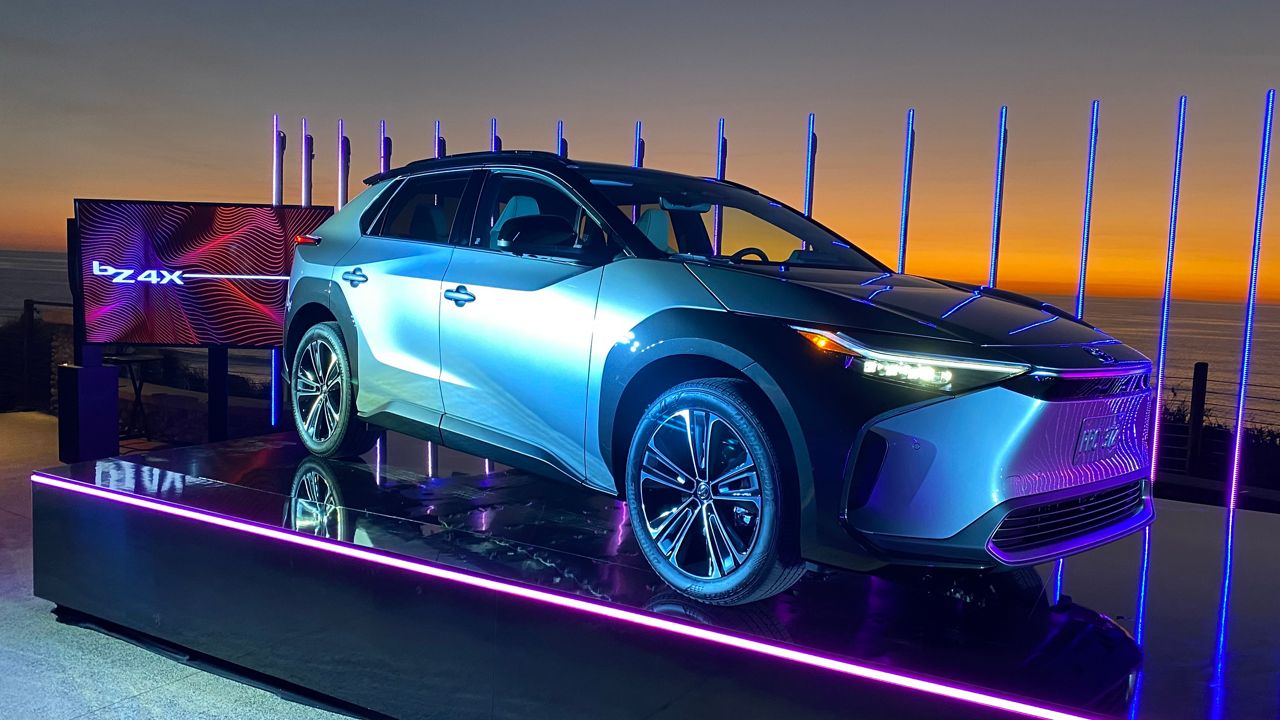LOS ANGELES — The name of Toyota's first mass-produced battery electric vehicle doesn't exactly roll off the tongue. It's called the bZ4X — bZ being shorthand for the Japanese auto maker's new Beyond Zero brand umbrella, and 4X being a nod to the first Toyota vehicle to use an enhanced all-wheel-drive system known as X-Mode.
Promising the spaciousness of an SUV, the comfort of a luxury sedan and fun driving performance paired with Toyota reliability, the bZ4X is the production version of a concept vehicle the company first debuted in June. It will be available next summer, although pricing has not yet been announced.
The bZ4X bears a striking resemblance to another battery-electric SUV being introduced at the Los Angeles Auto Show Wednesday: the Subaru Solterra, which was co-developed with Toyota. The bZ4X body style is almost identical, down to the snub-nosed, look-ma-no-grille front end and rugged-rubber-baby-bumper plasticized wheel overhangs.
That said, there are a few differences. The estimated range is 250 miles per charge (compared with Subaru's anticipated 220+) and the off-roading the Toyota's able to do is characterized as "light."
Like the Solterra, the bZ4X comes with a redesigned multimedia system and a large center screen that dominates the dashboard. It too has a digital key that can unlock, lock and start the car with the tap of a smartphone.
Toyota says the bZ4X will be its first vehicle to add future functions and capabilities with over-the-air updates or software that is pushed to the car over WiFi — an idea Tesla first popularized for cars.
Powered with a battery that is situated under the floor and that, Toyota says, is designed to hold 90% of its capacity after ten years, the bZ4X incorporates energy-saving technologies to help improve its range. The air conditioning is a heat pump style, and the front seat uses a radiant heating system — another first for Toyota.
Love it or hate it, Toyota ushered in the modern electric era with its groundbreaking Prius hybrid, which has been on the U.S. market since 2000. But considering its pioneering status as a model, the company as a whole has been slow to commit to an end date for gas-powered vehicles.
Toyota currently offers 11 hybrid and plug-in hybrid models, which is where it has focused its electrification strategy, despite producing two limited production battery-electric versions of its popular RAV4 SUV.
In 2017, it announced its global environmental challenge 2050, which set a goal of more than 50% vehicle electrification by 2030, in addition to 10% battery electric and hydrogen fuel cells. In debuting its bZ4X, Toyota announced it plans to expand to around electrified models globally by 2025. The future lineup will include 15 battery electrics, including seven that will be part of the bZ brand.



